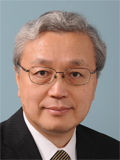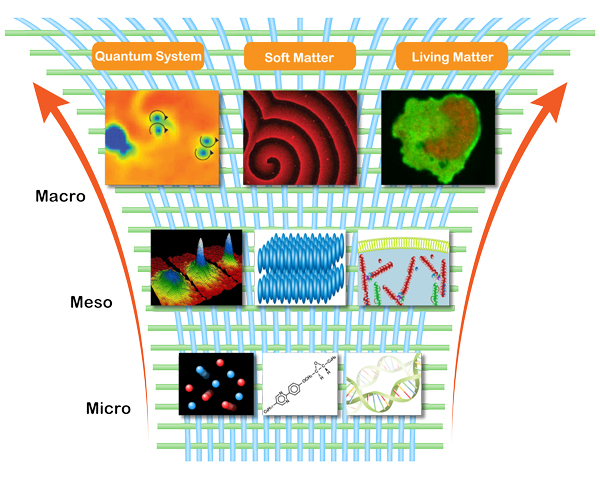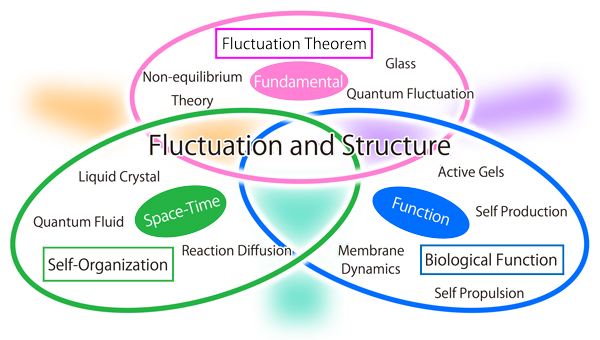Project Overview

Project Leader : SANO, Masaki
Professor, Department of Physics, University of Tokyo
Objectives
Although research on the equilibrium state of matter is based on an established methodology of thermo-dynamics and statistical physics, the science for non-equilibrium systems is still being developed. Elucidating non-equilibrium phenomena, and finding general laws to describe non-equilibrium systems are modern challenges.
This Research Area strives to expand two major areas of non-equilibrium science — studies of non-equilibrium fluctuations and self-organizing structures. Although these areas have been independently researched on the mesoscopic and macroscopic level respectively, integrating them will create a new research paradigm. In fact, the recent discovery of a universal law for non-equilibrium fluctuations and the recent advancement of experimental techniques for mesoscale systems have realized a research environment where fluctuations and structures can be treated in a unified manner. Now is the time to advance non-equilibrium science. Through close collaborations between experimentalists and theorists in various fields, including quantum condensed mater, soft condensed matter, and non-equilibrium statistical mechanics, we aim to explore universal knowledge that is rich in applications beyond each individual field. Methodology of statistical mechanics, which connect microscale and macroscale worlds, work as a key element in one dimension, while those of nonlinear physics, which treat different subjects in a unified manner, work as the key element in the other dimension. In mesoscale systems where these two approaches cross, we strive to create a new paradigm in non-equilibrium science by integrating the latest theories, precise measurements, and control techniques of fluctuations as well as the self-organized structures that accompany fluctuations.

Research Content
To achieve the aforementioned objectives, we have created three groups: fundamental, space-time, and function. Each group has its own target. The fundamental group aims to establish universal laws that connect microscale and macroscale worlds in quantum systems, soft matter, active matter, and biomatter systems using the universality of non-equilibrium fluctuations. The space-time group strives to elucidate phenomena with both feedback interactions between macroscale and microscale structures and strong correlations between fluctuations and structure. The function group intends to elucidate physical principles by which a collection of mere matter can exert basic functions of life, such as self-production, self-propulsion, or information transfer, based on the emergent non-equilibrium structure of matter in order to seek a physical understanding of biological phenomena.
Expected achievements and significance
Many fields have an increased interest in non-equilibrium systems. By developing this Research Area, we expect positive ripple effects. (1) A deeper understanding of non-equilibrium laws will become fundamental knowledge in various research fields. (2) Non-Equilibrium statistical mechanics for the system with information feedback has a close relation to the control of mesosystems and nanosystems, which may lead to the development of innovative technologies. (3) The establishment of artificial cell models should contribute to the development of biophysics and chemical engineering.

